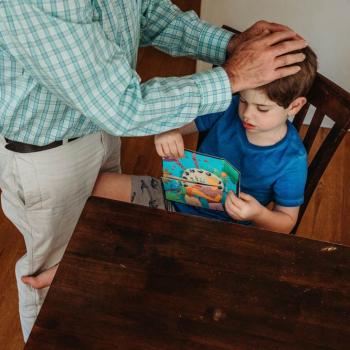Why are “nones” on the rise? The answer might surprise you.
I recently gave a radio interview about the latest Pew Center finding that “nones” (unchurched/”spiritual not religious”) are the fastest growing demographic on the religious scene. The interviewer asked me if I thought the increasingly secular culture was responsible for both the loss of faith and the breakdown of the family. I surprised him by saying that the research suggests it just might be the other way around–that the rise in both nones and a more secular culture can be more directly tied to the high divorce rate. Here’s why.
Seekers VS. Samplers
Today’s Millennial “nones” are different than nones of the past. Previously, the unchurched were seekers. While they often spent some part of young adulthood unaffiliated with any denomination, they almost always landed somewhere–usually the church of their childhood. By contrast, today’s nones are resistant to landing. Rather than seekers, they are perpetual samplers, cobbling together their own hybrid spiritualities from the religious buffet. This difference in the character of contemporary “nones” speaks to a deep sense of spiritual ambivalence.
The Root of Spiritual Ambivalence
Ken Pargament, professor of religion and psychology at Bowling Green University has conducted ground-breaking research into what might be considered spiritual disorders; that is, unhealthy approaches to the natural human drive for meaning-making and significance. He found that spiritual ambivalence tends to be rooted in too-early disillusionment in one’s parents. While healthy development requires that every child eventually realize his or her parents aren’t perfect, when this disillusionment happens too early, children become spiritually self-protective. Part of a parent’s jobs is to help children make sense of the world. Premature disillusionment tends to cause children to distrust any authority figure’s role in helping them find meaning and significance in life. These children tend to believe that they and they alone have the right to decide what is and isn’t true. Letting anyone else help them in this role can make them feel too vulnerable and even violated. They become, not sincere spiritual seekers, but rather perpetual spiritual samplers–happy to taste from the religious buffet but eternally afraid to commit. A perfect example of this is Reba Riley’s book, Post-Traumatic Church Syndrome: A Memoir of Humor and Healingwhere she describes sampling 30 religions before her 30th birthday; a spiritual quest set off by her religious parents’ divorce which caused her to discount and even resent the spiritual security she trusted in her early years.
Between Two Worlds
But why would divorce–especially if it is a so-called “good divorce” (characterized by low conflict and relatively good parent-child rapport) cause such disillusionment? Elizabeth Marquardt’s study of over 1700 adult children of divorce points to an answer. She found that even in the best of circumstances, divorce causes children to live between two worlds–Mom’s World and Dad’s World. When living in Mom’s World, kids don’t talk about life in Dad’s World for fear of upsetting mom. Vice-versa when living in Dad’s World. The only place these two all-important worlds come together is inside the child’s own head. No matter how much they love their children, the divorced mom and dad can do very little to give their children a narrative that helps their life make sense. The child must learn to do this for him or herself. Having taken on this incredibly difficult role traditionally reserved for adults, is it any wonder that these children are loathe to let anyone besides themselves makes sense out of life, the universe, and everything? After all, they’ve already been doing it for themselves their entire lives.
Likewise, in an intact family, religious rituals help bind the family together. But in a divorced family they often become one more point of conflict between Mom’s World and Dad’s World. In this scenario, religion actually becomes a burden–just one more difference between mom and dad that a child has to sort out for him or herself.
Doomed?
Does this mean that all children of divorce are doomed to be spiritual wanderers? Of course not. But there is no question that divorce places an unappreciated spiritual burden on children. Seen in this light, it is not at all surprising to see an article written by a group of adult children of divorce appear in America Magazine opposing easy solutions for readmitting the divorced and remarried back into communion on the grounds that “children need…the church to stand with them and to speak the truth about what their parent or parents have done.”
The bottom line is that a Church that wants to transform the culture and open hearts to Christ can never be soft on divorce. And the people who subscribe to such a faith could do much to save the world by turning their attention homeward and saving their marriages.
Dr. Greg Popcak is the author of many books including the new, revised and expanded 2nd edition of For Better…FOREVER! A Catholic Guide to Lifelong Marriage. To learn more about his books, radio program and telecounseling services, visit www.CatholicCounselors.com













